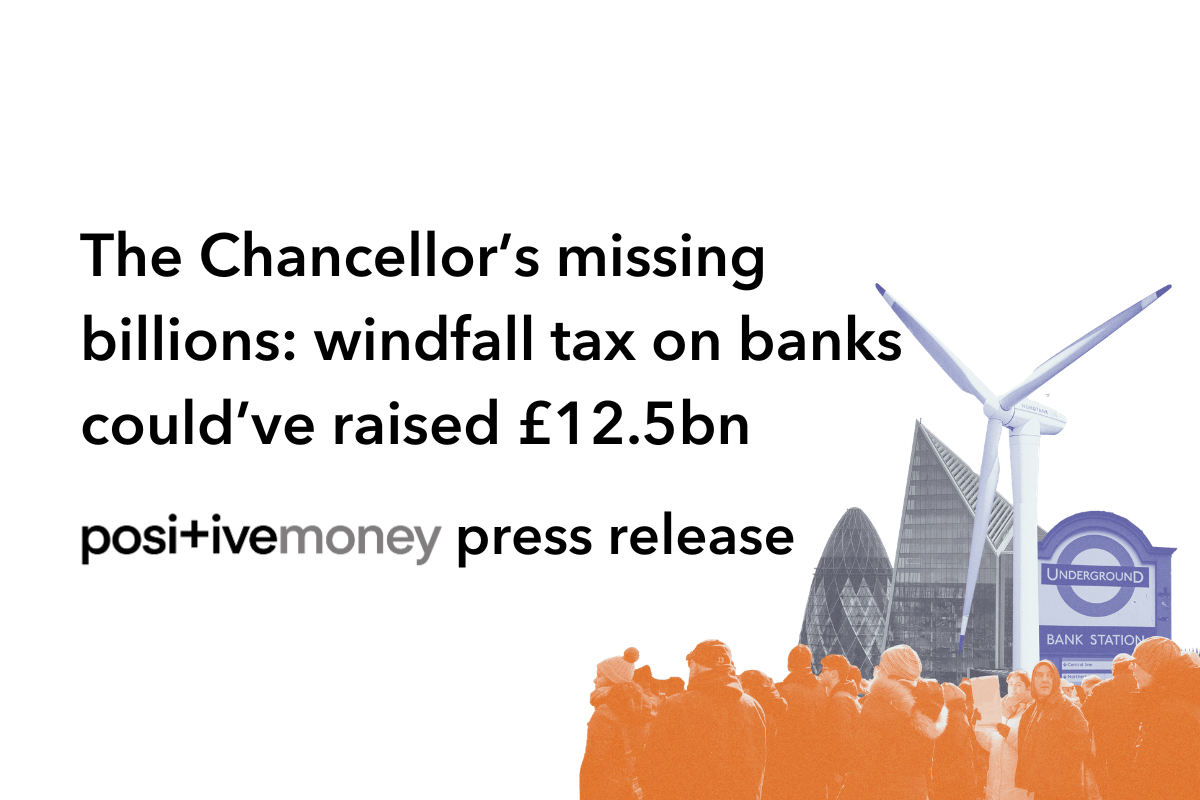
Monetary policy and inequalityUK
25 February 2026
LONDON, 14 October 2022 – Think tanks have today urged the Treasury and Bank of England to impose conditions on energy firms benefiting from a new £40 billion scheme which opens next week.
The Energy Markets Financing Scheme (EMFS) will open to applications on Monday, offering emergency support to energy firms operating in the UK wholesale market, to address the ‘extraordinary liquidity requirements faced by energy firms from high and volatile energy prices’.
Economic policy organisations have called for conditions to be attached to this new scheme, arguing that firms who are struggling because of excessive reliance on fossil fuels should not be given a ‘free pass’ or be able to misuse public support. They argue that the Bank should “avoid repeating mistakes the government and the Bank made previously under the Covid Corporate Financing Facility which provided over £38 billion of cheap funds to 100 companies, without any conditions on protecting jobs or the environment”.
The campaign groups urge policymakers to require participating firms to meet the following conditions:
Not conduct share buybacks and dividend payouts or lay off workers whilst in receipt of funds.
Provide their customers with comprehensive information on how to reduce their energy usage, with the scheme offering lower fees to participating firms that achieve demand reduction, and increasing fees for those that don’t.
Commit to further reductions in their reliance on fossil fuels, either in energy they generate, or in energy they purchase to resell.
The groups also propose that the Bank of England repurpose the EMFS as a Clean Energy Financing Scheme (CEFS), providing financing on advantageous terms for energy firms to speed up their transition to clean energy, including investments in energy storage and grid capacity.
Lukasz Krebel, Economist at NEF, said:
“The Treasury and the Bank have repeatedly been able to finance very substantial emergency packages, from the original bank bail-outs in 2008-9, through the pandemic QE and the Term Funding Scheme, to the Energy Price Guarantee and the EMFS.
“It is right that our public institutions use their balance sheet to respond to shocks – but they should also be using their financing capacity to help get us to Net Zero. They should use their policy interventions to create a more resilient energy system that ends the UK’s exposure to fossil fuel price shocks whilst enabling us to reach our environmental goals.”
Fran Boait, executive director at Positive Money, said:
“It’s positive that policymakers appear to have learned the lessons of previous corporate bailout schemes, signalling that the EMFS will be priced as a ‘last resort’ and access will be subject to conditions.
“But the terms of the scheme should ensure that beneficiaries aren’t able to use cheap funding to enrich shareholders through share buybacks and dividend payouts, and that firms are committed to decarbonisation.”
Notes:
The full letter is available at: http://positivemoney.org/wp-content/uploads/EMFS-letter.pdf
The Bank of England and HM Treasury announced the Energy Markets Financing Scheme on 8 September 2022: https://www.gov.uk/government/news/hm-treasury-and-bank-of-england-to-launch-the-energy-markets-financing-scheme-emfs
The National Grid warned of three-hour long blackouts this winter on 6 October 2022: https://www.theguardian.com/business/2022/oct/06/national-grid-warns-households-could-face-three-hour-power-cuts-this-winter
Positive Money report on the Covid Corporate Financing Facility, July 2020: https://positivemoney.org/publications/ccff/
For additional comment or to speak to a spokesperson, please contact Chloe Musto on 0772498066 or press@positivemoney.org.uk.
About Positive Money
Positive Money is a research and campaign organisation working towards a money and banking system which supports a fair, democratic and sustainable economy. Set up in the aftermath of the financial crisis, Positive Money is a not-for-profit company funded by charitable trusts and foundations, as well as small donations from its network of over 65,000 supporters. www.positivemoney.org.uk
